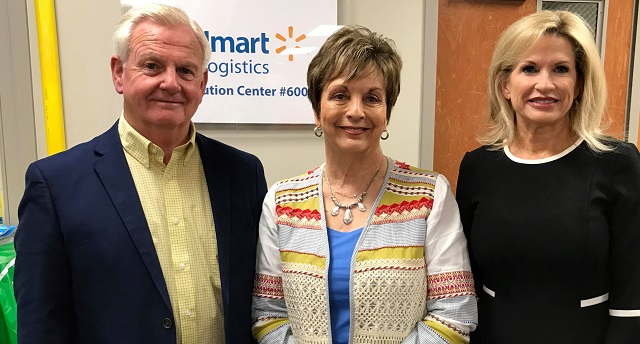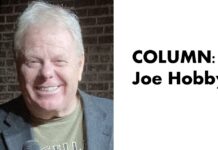
CULLMAN, Ala. – The Cullman Area Chamber of Commerce (COC) held meetings Friday morning to allow stakeholders, Chamber members, the media and the general public to review its financial statements from the 2018-2019 Chamber year (ending Feb. 28, 2019).
For several months there have been discussion and controversy surrounding the use of lodging tax dollars by the COC, most notably surrounding Project X (which would have seen 2% of the lodging tax allocated to the Cullman County Schools endeavor, including a sports complex), the resignation of the COC president, resignation of COC board members, failure to disclose projects and expenditures to the tourism committee and a lack of transparency with the hotels that generate the lodging tax.
Project X was announced in March. In April, the Cullman Hospitality Association called for the lodging tax to be removed from the COC’s control, and by June, the COC had voted to rescind its commitment of the lodging tax dollars to the project.
At Friday’s meetings, the COC’s Vice Chair, Finance & Administration Scotty Segroves and Charlie Eddy from accounting firm Warren Averett were present to answer questions, along with board members and staff from the COC.
COC Interim President Peggy Smith said, “It was just a few short weeks ago that I was appointed as interim president. During this time, I have worked very hard to try to understand the issues that are facing our Chamber.”
Smith, who served as the longtime director of the Cullman Economic Development Agency prior to her work with the COC, came into the position this month after the resignation of former COC President and CEO Leah Bolin in May of this year.
Also resigning this year was Chamber Board Chair Dr. T.J Franey, who stepped down in early August, making Kay Shabel the new Chair of the COC’s 2019-2020 Executive Committee.
Shabel was joined by Vice Chair of Tourism Jeff Tolbert to help answer questions in hopes of creating more transparency regarding how and where the COC spends its money.
Smith continued, “Change in leadership I know is difficult for any organization, and the Cullman Chamber of Commerce is no exception. I do want to thank the staff, officers, board and everyone in this community for making this Chamber what we need in Cullman.”
Eddy reviewed the 2018-2019 financial statements with the stakeholders, who had several questions.
Eddy explained why the COC financials were reviewed, as opposed to the organization undergoing a complete audit, which The Tribune called for in June of this year.
“Audits are much more expensive and take more time so we wanted to do our part and save the Chamber money and give them basically the same level of service at a lower cost,” said Eddy.
The COC has not had a complete audit since 2007.
According to the financials provided for the 2018-2019 Chamber year, the COC has $411,401 in cash reserves with total assets of $1,390,920. The COC received $516,735 in revenue from the lodging tax, compared to $459,984 in 2017-2018. There was a noticeable spike in the money the COC spent on programs/events and salaries in 2018-2019. Programs and events expenditures increased to $481,468 in 2018-2019 compared to $302,040 in 2017-2018.
Salaries increased by approximately $90,000 in 2018-2019, costing a total of $485,162 for the year.
Eddy defended the salaries, saying, “What we do is benchmark this chamber against other chambers that are in our network. (The) industry average based on what I see is salaries are generally 38-40% of revenues. The COC is right at 35% this year. I think now, if we benchmarked the chamber’s salaries now, that would be even lower than it was in February of 2019.”
Questions regarding lodging tax receipts seemed to be the largest concern.
The section of the financial statement addressing that states: “The proceeds of the 5% lodging tax levied by the State of Alabama are remitted to the Chamber by the Cullman County Commission. The Chamber will use 40% of the proceeds exclusively for the purpose of developing and promoting tourism and conventions, and 20% will be used exclusively for economic and industrial development purposes in the county. The Chamber recognizes these receipts as donors restricted net assets when are received from the Cullman County Commission. The remaining 40% is to be used as follows: 30% or the remaining amount will be used exclusively for the purpose of developing and promoting tourism and conventions, and 70% is designated to fund debt entered into by the Cullman County Commission in order to fund the 222 Interchange Project. The Chamber entered into an agreement with the Cullman County Commission to fund the 222 Interchange project during fiscal year 2014. In 2019, the Chamber received $711,495 in lodging tax receipts, of which $199,219 was remitted to fund the 222 Interchange Projects debt. The Chamber does not recognize the proceeds remitted for this project as revenue. The Chamber’ s obligation began on March 1, 2013 and will cease March 1, 2023.”
Reported 2018-2019 Functional Expenses:
- Management and General- $581, 052 (41.7%)
- Tourism Program- $242, 790 (17,42%)
- Economic Development Program- $569.190 (40.85%)
Wallace State Community College President Dr. Vicki Karolewics said, “It would seem if you were allocating by a third, that your total expenditures would be roughly a third, but tourism expenditures are only about 17% of total expenditures. So, are (you) really dividing proportionate effort? As a comparison, if you have a third of your energy spent on tourism, you would think that maybe your total expenses would reflect that investment in promoting tourism. That might speak to policy- poor policy.”
Tolbert addressed the allocation concerns, saying, “We are putting procedures in place to make sure any projects going forward will be vetted very carefully.”
Sen. Garlan Gudger, R-Cullman questioned the COC’s large number of projects and programs, saying, “I see this list of programs that are here and I feel like if we could put some horse blinders on and go through those and highlight, OK, some of these didn’t make the impact we thought it would in the last two years or year and pull that down, I think we would make more of an impact on less amount of programs. That saves the staff from running to and from everywhere, but you are producing more. I think that’s the beneficial question in my head is the big one I want to continue to answer is, ‘Is the money here being spent in the best way possible for the community?’ That’s where I have to be on the funding side of this thing.”
Clarifying the roles and responsibilities of each agency is a top priority going forward, according to Tolbert.
“Going forward we are going to make sure expenses are allocated correctly. We will be looking at those with a microscope,” he said. “The Chamber’s mission has got to be focused. It’s gotta be to make our members more profitable or more successful. In everything we do, whether it’s putting billboards up on I-65 or 2nd Fridays, it’s to support the members.”
Gudger urged everyone to work together, communicate, build trust and commit to making sure they are focused on benefiting the entire community.
Tolbert agreed, stating, “Duplicating services is crazy.”
Shabel added, “It’s not being a good steward of the money.”
Cullman Mayor Woody Jacobs pointed out, “I think y’all are (giving) 100% effort. One thing I have a little bit of a problem with is, a chamber exists for its members and you are getting A LOT of tax dollars. That can’t just go for the members. Those tax dollars didn’t come in for the members.”
Smith and Shabel said they are open to dialog with stakeholders as the COC works to improve and build for the future. Smith suggested implementing a grant-type application to help with determining the use of funds for future projects. The pair spoke of their desire to create a collaborative effort with other agencies and to provide transparency.
Following the meeting with the stakeholders, COC representatives and Warren Averett welcomed the public, COC members and the media for a question and answer session after a quick review of the financial statements.
Most of the session addressed the same issues as the meeting held with the stakeholders.
Many of the area hotel managers were in attendance including the managers of the LaQuinta Inn and the Hampton Inn.
One question asked was if lodging taxes are used toward salaries.
Eddy explained, “Payroll is allocated based on the activities and in some cases, there is a director of tourism, a director of economic development, and those salaries are allocated directly to those funds. There are other people like Jackie (Moore, who handles operations administration); her salary is allocated among all of the funds because she spends time doing accounting work and office administration work for all of those.”
Tolbert added, “Also, when you have a small organization, you have to have a peer as your back-up. If Roger’s (Steele, who handles tourism) primary function is tourism but he has an illness or something like that, that person has to be able to crossover in order to back that person up.”
When asked who decides how and where the lodging tax is spent, Tolbert said, “Going forward, we will sit down and the revenues we can project that will be coming in, we will be getting the various committees’ input on how we spend those dollars going forward. I can’t speak for how it was done in the past, but under Kay’s leadership, I can tell you it will be 100% transparent going forward.”
When asked about hopes for the COC’s future, Smith closed the meeting saying, “I hope we can mend all our relationships with our stakeholders and that we can begin moving forward as a community and with our community partners. Just make this a better place for our children and grandchildren. If we all can be on the same page and work together, it would be such a huge success.”
Copyright 2019 Humble Roots, LLC. All Rights Reserved.




















